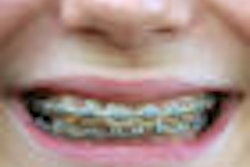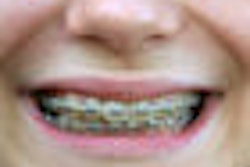Insufficient cleaning could lead to a buildup of potentially pathogenic microbes on orthodontic retainers, according to a study by researchers from University College London Eastman Dental Institute (Letters in Applied Microbiology, March 14, 2011).
The study, which found potentially pathogenic microbes growing on at least 50% of the retainers examined, could indicate a need for the development of improved cleaning products for orthodontic retainers, the researchers noted.
Jonathan Pratten, PhD, and his team took samples from the mouths of people without retainers and those wearing two most widely used types. As retainers are frequently removed and replaced in the mouth, the potential for transmission of microbes is high.
First, Staphylococcus spp. and Candida spp. were isolated from the retainer's inner surface and from other mucosal surfaces of the subject's mouth by routine bacterial culture. The prevalence and proportions of these micro-organisms on retainers was compared in different areas of the mouth within a group of retainer wearers, and mucosal carriage was compared to a group of nonretainer wearers.
Staphylococcus spp. were isolated from 50% of the retainers and comprised on average 8.4% of the viable microbiota. Candida spp. comprised 0.13% of the viable microbiota and were recovered from 66.7% of the retainers. Neither genus was isolated from nonretainer wearers. The microbes were also present on the interior cheeks and tongue of retainer wearers, the institute said.
Then the two most commonly worn retainers manufactured from different materials were sampled; again Staphylococcus spp. and Candida spp. were recovered; however, no statistical differences were observed between the devices.
Candida and Staphylococcus rarely cause problems in healthy individuals but are potentially highly problematic in people with a compromised immune system. The bacteria on the retainers live in biofilms; once these biofilms form, they are very difficult to remove and often have high levels of resistance to antimicrobials.
"With the growing awareness the public has of hospital-acquired infections it is important to be aware of other potential 'hidden reservoirs' of harmful bacteria, which could be introduced to environments where we know they can cause problems," Pratten said.
While the researchers are now looking at developing effective methods of cleaning, for now hygiene is the key to reducing the transmission of these bacteria, the institute said. Anyone handling a retainer should wash their hands before and after use. Careful tooth brushing and mouthwash may also help to keep the retainer clean.



















